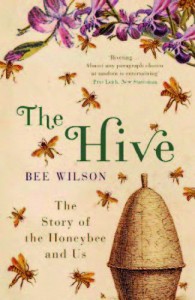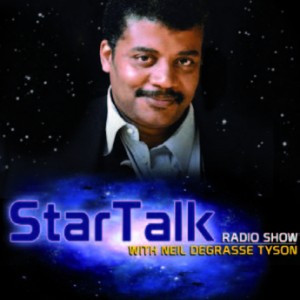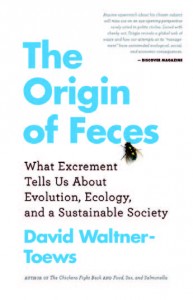MONDAY, 25 NOVEMBER 2013
In The Hive, the appositely named Bee Wilson explores the history of our relationship with the honeybee over the past 10,000 years. Rather than simply presenting the evolution of this relationship in chronological order, Wilson employs aspects of modern society (e.g. politics) to provide a narrative structure, which is much more engrossing than simply plodding through time. Some of the most interesting aspects of the book are the discussions of our past scientific theories on the origin of bees and their societal structure. The earliest observers of the honeybee thought that swarms spontaneously arose from dead oxen, a theory which remained fixed in public opinion for nearly 2,000 years. Furthermore, the popular view as to the sex of the hive’s queen depended on the gender of the reigning monarch (particularly upon the death of Elizabeth I). This book therefore provides some wonderful examples of how established theory can either go unchallenged for centuries, or be transformed to align with societal norms. There are also some surprising insights into other aspects of history, such as how the shape of the Egyptian Pharaoh’s crown was established. Highly informative and engaging, The Hive presents enough science to keep a keen mind involved but is also light enough for a perfect bedtime read. Greg MellersStarTalk Radio Show – Neil deGrasse Tyson
StarTalk Radio Show is a science podcast that airs roughly three times a month and is hosted by Neil deGrasse Tyson, an astrophysicist at the Museum of Natural History in New York and director of the Hayden Planetarium. As of July 2013, the show’s popularity was second only to Radiolab in the iTunes Store’s science & medicine themed podcasts in the US. Aside from a few question-and-answer shows, each week a comedian and/or scientific expert will join Tyson in mulling over his pre-recorded interview with a celebrity of variable fame; recent guests have included Alan Rickman, Bill Nye, Anthony Bourdain, and Max Brooks. Some of the more broadly appealing guests certainly impose limits on the scientific themes that can be covered in an episode. Furthermore, StarTalk relies solely on one or two experts to discuss these topics, meaning the show can lack depth when covering issues outside of their realm. Although it’s a fresh approach, the comedian often offers little more than infrequent and awkwardly timed one-liners. The fusion of science communication, comedy, and mainstream celebrity interviews does give this podcast the potential to reach new audiences. However, finding a better way to integrate these key components would benefit the show by improving its appeal to scientists and interested listeners with a variety of backgrounds. Jordan Ramsey
The Origin of Feces – David Waltner-Toews
Tn The Origin of Feces, David Waltner-Toews examines the history, composition and even definition of excrement as he puts forward his ideas on the ever-growing problem of dealing with our waste. A well-established author and former vet, his passion for the subject radiates from the pages—never before have dung beetles sounded so inspiring—and he provides a unique and well-grounded perspective. However, like many books in the popular science genre, it suffers from the problem of the science being frequently presented in an oversimplified or misleading manner. Though it occasionally creates the impression of trying too hard, the points the book makes are generally thought provoking and there are moments of genuine hilarity in the commentary—feces inherently lend themselves to a variety of jokes and many of these are capitalised on with great vigour. The first half of the book is perhaps the best, with strong stand-alone chapters each tackling one topic with fun facts and anecdotes, whilst the end is bogged down in a philosophy-rich ‘save the world’ message just as likely to alienate the reader as it is to engage them. A less preachy tone and a more tied-together narrative could benefit this book, though if you are searching for an entertaining toilet read then look no further. Nathan Smith



